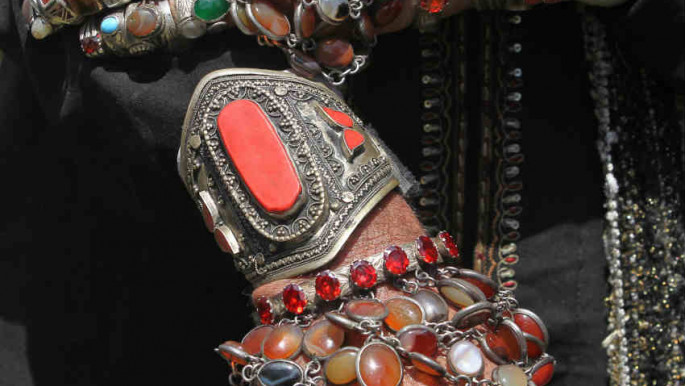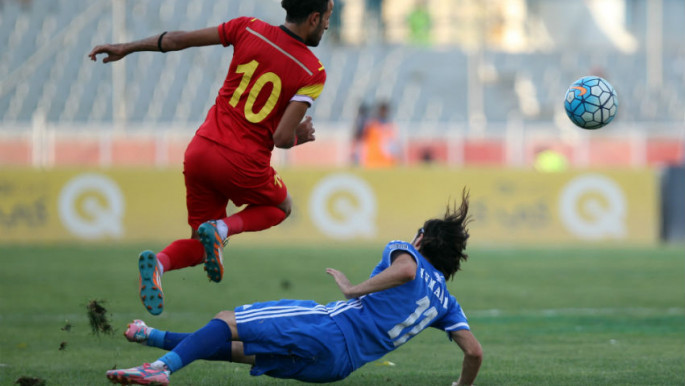The Iraq Report: Children bought and sold in ‘sex markets’ by Baghdad mafia
Click here to receive The Iraq Report each week in your inbox
Though most analysis of Iraq tends to focus on security and terrorism issues – particularly surrounding the Islamic State group – the principle victims of interventionism and state dysfunction in Iraq are its children. Apart from decades of war and sanctions that led to the deaths of hundreds of thousands of children, they are now being traded like commodities in illegal Baghdad human trafficking markets.
As Iraqi authorities fail to deal with crippling internal social and political crises, government and political figures are instead positioning Baghdad as a Middle Eastern Geneva, acting as mediators between Arab and Iranian rivals. Iraqi figures’ close relationship to Tehran and increasingly warmer ties to Saudi Arabia and its regional allies have afforded it the ability to conduct shuttle diplomacy between ostensibly implacable foes.
Iraqi children sold in ‘sex markets’
Even before the US-led invasion in 2003, Iraqi children bore the brunt of the sanctions regime imposed on Iraq following Saddam Hussein’s 1990 invasion of Kuwait. The controversial “Oil for Food” programme, backed by the United Nations, took Iraqi oil while giving Iraqis substandard goods and medical services. This sanctions regime led to the deaths of 550,000 children by 1996 – a price that then-Secretary of State Madeleine Albright said was “worth it”.
Despite the fact Saddam’s Baathist dictatorship has been gone for nearly 15 years, Iraqi children’s suffering has become even worse than in those dark days. From being drafted as child soldiers by IS and Shia Islamist militants alike, to having their education chronically disrupted by internecine warfare leading to child labour, Iraq’s children have not benefited from the post-US invasion regimes.
New reports reveal they are even being traded like livestock on the Iraqi capital’s streets, with little to no intervention from Green Zone-based officials. In a programme aired on Monday, Al Jazeera exposed the dark underbelly of organised criminals who traffic these children with the knowledge and even the collaboration of government officials and employees.
In one segment of the report, a woman named “Um Noor” – a facilitator for the smugglers, as well as a madam at one of their brothels – is secretly filmed as she offers an undercover reporter a year-and-a-half old baby girl for 10 million Iraqi dinars, or around $8,500.
Once purchased, the traffickers use their connections in government offices to obtain false identity documents, birth certificates and passports for the children’s new “owners”. According to the report, some of these children are purchased by families seeking to adopt children illegally, while others are sold into “sex markets” almost at birth to be raised in a world of exploitation and rape.
The report described the “absence of the state” in the fight against child trafficking and sexual exploitation, suggesting that yet another generation of Iraq’s children has already been lost to war, corruption and direct or indirect government complicity.
 |
| The hands of a ring-seller in Baghdad's Mutanabi Street, August 11 [AFP] |
Arab powers use Iraq to balance against, appease Iran
A number of recent reports have indicated a Gulf Arab effort to de-escalate tensions with regional Shia power Iran, with Iraq playing a key role in these Saudi Arabia-led plans. These moves come firstly via indirect outreach using mediators and secondly by coming to a possible compromise over the Yemen crisis.
According to a report published on Monday by Middle East Eye, Saudi Crown Prince Mohammed bin Salman has been looking for a way out of the military intervention into Yemen that he spearheaded in 2015, not long after his father, King Salman bin Abdulaziz Al-Saud, ascended to the throne. His attempts to disengage from Yemen apparently began when he disclosed his intentions to a former US ambassador to Israel in April this year.
Riyadh has also been busy throughout July and August, inviting a series of senior Iraqi ministers and political figures closely associated with Iran to build bridges with its estranged neighbour. In July, Iraqi Interior Minister Qasim al-Araji was invited to break bread with Saudi Arabian princes, while in August, firebrand Shia cleric Muqtada al-Sadr visited the oil-rich kingdom for meals and deals. On Tuesday, the Saudi-Iraq border opened for the first time in 27 years in a sign that Riyadh was serious about rapprochement with Iraq.
Before the border opening, Araji confirmed on Sunday that he had been asked in an official capacity to mediate disputes between Saudi Arabia and Iran, suggesting that Saudi concessions over Iranian pilgrims visiting cemeteries in the kingdom may go a long way to mending ties.
Similar sentiments were echoed by Riyadh’s closest regional ally, the United Arab Emirates. Fresh from his visit to Saudi Arabia, Sadr was flown to the UAE on a private jet and hosted by Abu Dhabi’s Crown Prince Mohammed bin Zayed. His visit was hailed as a new start for Iraqi-Gulf Arab relations, despite the fact the UAE has listed Sadr’s Promise Day Brigade militia – or Liwa al-Yawm al-Maw’oud in Arabic – as a terrorist organisation.
While analysts have rubbished Saudi Arabia’s charm offensive as being doomed to failure and hypocritical – especially considering Riyadh’s allegations against neighbouring Qatar of collaboration with Iran – it is clear that the Gulf Arab powers led by Riyadh are seeking an end to the long-running conflict with Iran, courting Iranian proxies such as Sadr, while also opening diplomatic communications via semi-official channels through people such as Araji.
 |
| Midfielder Humam Tariq (bottom), of the Iraqi Air Force team, tackles an Al-Hedood player during their Iraqi League football match on August 10, 2017, in Baghdad [AFP] |
Basra’s governor flees to Iran amid corruption scandal
The southern port city of Basra, once one of Iraq’s most prosperous cities, has once again hit the headlines, and for all the wrong reasons.
The former governor of Basra, Majid al-Nasrawi, fled the oil-rich city last Thursday mere hours after resigning from the post he has held since June 2013. The governor was allegedly smuggled to Iran through the Shalamjah border crossing in order to escape an impending corruption investigation that would have reportedly implicated both him and his son.
Mazin al-Mazini, a Sadrist politician, accused local government officials of assisting Nasrawi’s escape from justice.
“Nasrawi did not flee. He was smuggled to Iran. His escape came after he was tipped off by his accomplices both in Basra and Baghdad,” Mazini said. “In the coming days we will see many more Basra officials linked to the corruption charges fleeing the country.”
The investigation revolves around Nasrawi and his son issuing contracts to businesses to improve public services in Basra, and allegedly receiving enormous kickbacks from the deals. The allegations are made worse by the fact that public services failed to improve, despite the many contracts issued by Nasrawi’s office.
Basra has long been a major concern for Iraqis, particularly considering its vital role in the energy sector and as Iraq’s only access to the sea at the mouth of the strategic Shatt al-Arab waterway. Basra is now a hub for the Iraqi drug trade, with narcotics entering from Afghanistan and Iran, before ending up in the hands of pushers on Basra’s streets.
Due to its nature as a distribution hub and its proximity to the Iranian border – as well as it being a base for many pro-Tehran militias – Basra now has Iraq’s highest proportion of addicts and dealers, causing a devastating social and economic impact.
With drug profiteering comes sex trafficking and gangs forcing women into prostitution rings, controlling them by forcing them to become addicts themselves. Shia militias who run the cross-border operation with Iran act with near total impunity, and enjoy billions of dollars of illicit profits, while leaving Basra a debilitated husk of its former glory.
Click here to receive The Iraq Report each week in your inbox



